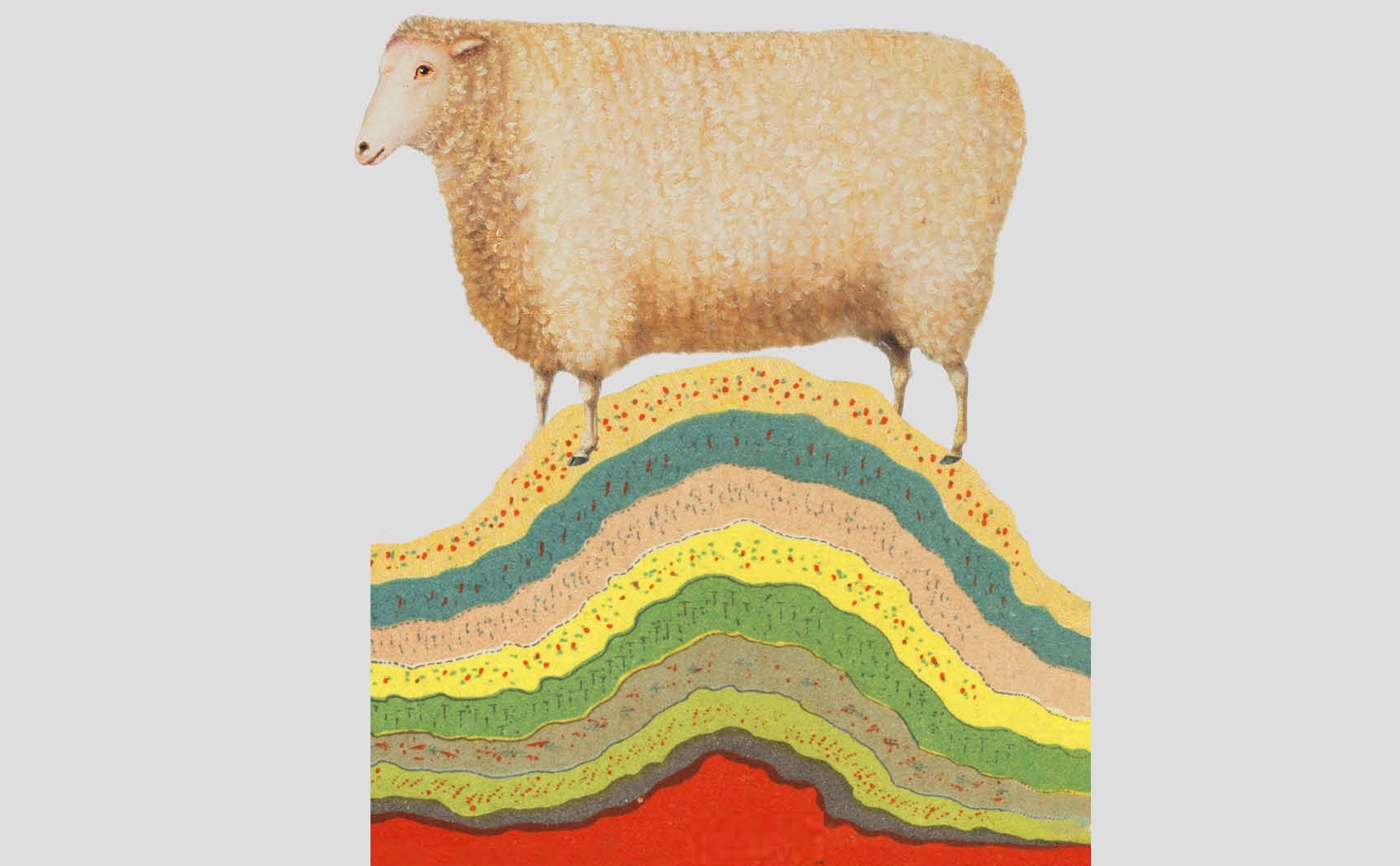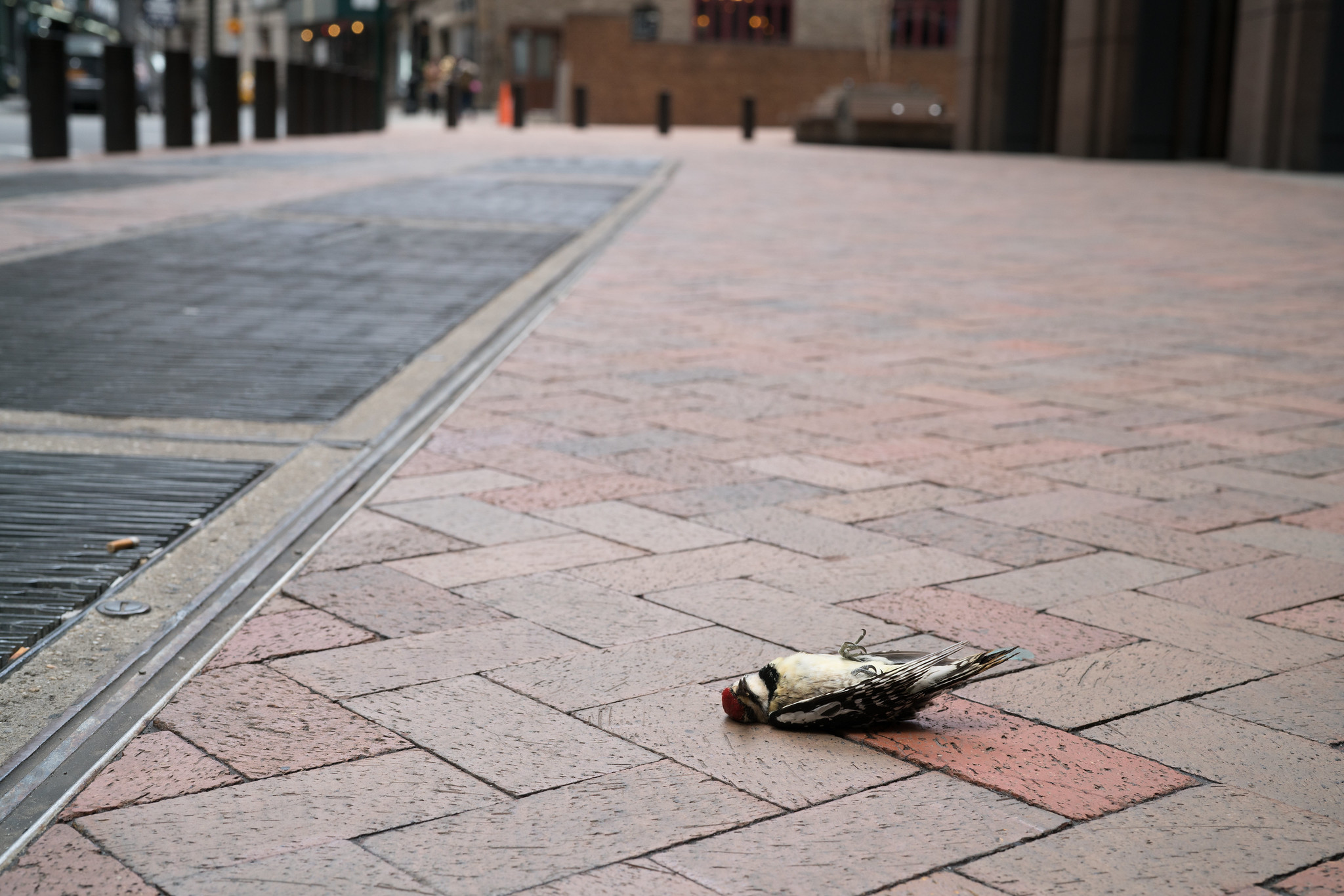Books & Culture
Labor Day: 11 Lousy Jobs in Literature
These fictional jobs will make you feel better about your own

When Herman Melville published “Bartleby, the Scrivener: A Story of Wall Street” in 1853, he created a lasting portrayal of the mindless drugery and paper pushing that occurs in a white-collar office place (in Bartelby’s case, a law office). Bartleby’s resistance to making copies and other boring tasks is not only still relevant, it’s at the core of the growing genre of office-based dramas. In the universal yet fundamentally bizarre microcosm of an office —because really, you’ve voluntarily sequestered yourself in a room with a random assortment of people — the intrigues, romances, and conflicts are inflated.
At the DMV or the dentist, we acknowledge that no one would be there unless they had to be; in the workplace, it’s an open secret, by turns dark and hilarious. TV and film mine the workplace all the time, but this Labor Day, why not pick up a novel to fill The Office-shaped hole in your life?
The books on this list range from a tale of a failing alligator theme park in southern Florida to a satire of corporate America (but seriously, where does all the tasteless cantaloupe come from?), from office jobs to manual labor.
Each one should make you feel a little bit better about returning to your job after the long weekend, with summer finished and a long dark winter ahead.
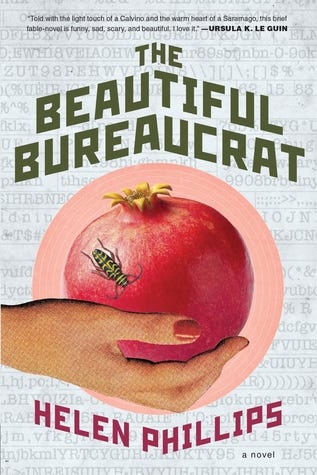
1. The Beautiful Bureaucrat by Helen Phillips
Josephine Newbury has a mind-numbing job: she compares paper files to a computer database and updates the latter if there are any inconsistencies. Not only does she repeat this simple task ad nauseam but, in an Orwellian twist, the files are meaningless strings of numbers, her boss is known only as “The Person with Bad Breath,” and her office is a windowless, blank room hidden away inside a building labeled with the letters A and Z. Phillips’ novel is chilling mix of the dystopian and the familiar, ultimately asking questions about humanity and rising above easy office satire.
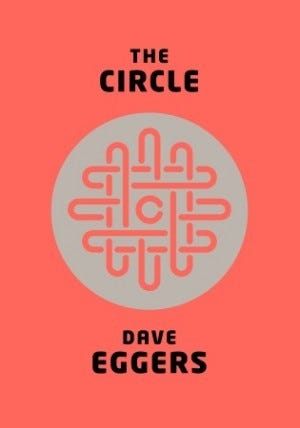
2. The Circle by Dave Eggers
It was inevitable that Silicon Valley, the poster child for a new worker-friendly environment, would come crashing off its pedestal. This has happened both in real life (see: misogynistic culture, profitless companies) and with fictional satires like HBO’s Silicon Valley. It’s not surprising that Dave Eggers would take a shot at big tech. His tenth novel follows the recent college grad Mae Holland as she begins work at The Circle, a powerful technology company run by the “Three Wise Men.” After falling for the perks of working there (free snacks, happy hour), Mae learns the troubling truth: the company’s surveillance technology will lead to increased government control and possibly even a totalitarian state. It’s a warning to tech geeks everywhere: in the future, the only thing we’ll be free of is gluten.
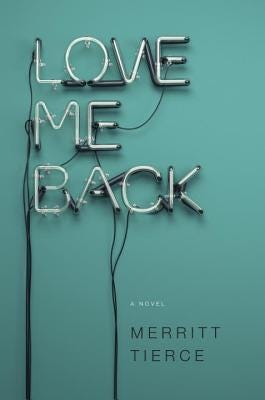
3. Love Me Back by Merritt Tierce
Tierce’s debut novel follows Marie, a self-destructive young woman working at a series of restaurants in Texas. Her waitressing experience is one long high, a chaotic frenzy of orders taken between drug hits and casual sexual encounters. Despite Marie’s somewhat sadistic enjoyment of the job, Tierce shows the brutal realities of the service industry, which can be exhausting, demeaning, and more than a little frustrating when you’re paid less than minimum wage to serve hundred dollar steaks.
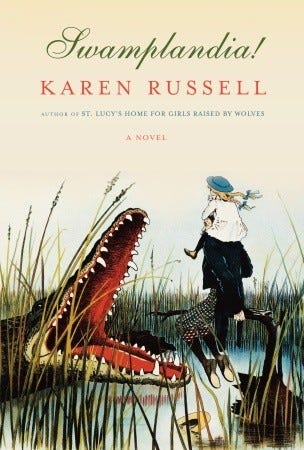
4. Swamplandia! by Karen Russell
The titular Swamplandia in this Pulitzer Prize-nominated novel is a run-down alligator theme park on a remote island off the southern Florida coast. Ava Bigtree is a thirteen-year-old on a mission to help save her family’s park — and her family itself — from complete collapse. But no amount of alligator wresting is able to pull Swamplandia out of a descent into its eery, watery environs. You know your business is bad when you lose customers to a rival park called “The World of Darkness.”
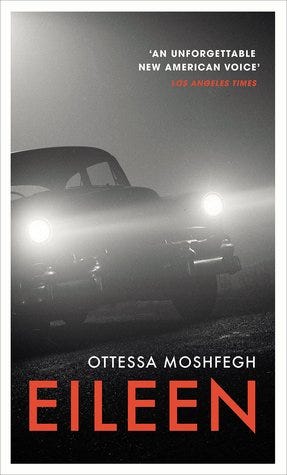
5. Eileen by Ottessa Moshfegh
Almost no one has a great job at the age of twenty-four but for Eileen, working as an underpaid public relations assistant or junior editor would be a dream. And dream she does, of moving to New York and leaving her job as a secretary who’s paid fifty-seven dollars a week to work at a private juvenile correctional facility for teenage boys in the middle of blue-collar Massachusetts.
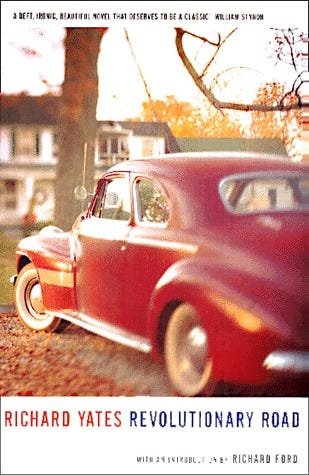
6. Revolutionary Road by Richard Yates
Long before Mad Men, Richard Yates took on the dark side of the “American Dream” of two kids, a car, and a house in the suburbs. Frank Wheeler appears to have it all; he works at Knox Business Machines, commuting to New York City from his home in suburban Connecticut. His wife, April, was an aspiring actress before she became a housewife and mother of two. Yet both Wheelers feel trapped in their vacuous life and yearn for more. When April suggests moving to Paris to become artists, it’s Frank who can’t commit. Like so many other Americans, he’s in the grip of the job he hates, alternatively despising it and being enthralled by the idea of success.

7. Personal Days by Ed Park
Ed Park riffs on the Frank Wheeler paradox of modern life: you fear getting laid off from a job you hate. The novel follows workers at a failing ad agency in New York City who have survived one round of layoffs only to find themselves anticipating the next. The book mines today’s workplace culture. The three section headings are pulled from technology — “Can’t Undo,” “Replace All,” “Revert to Saved” — and the environment is relatable to anyone who’s worked in a modern office: drinking with your colleagues, regretting drinking with your colleagues, self-Googling, and the merits of various Starbucks.
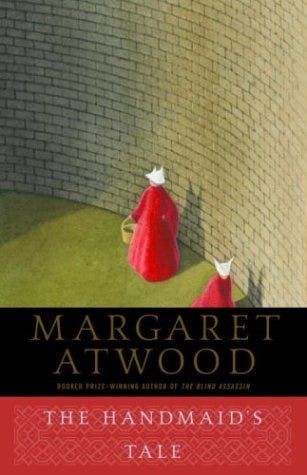
8. The Handmaid’s Tale by Margaret Atwood
As bad as your job may be, it can’t be worse than being a handmaid in Atwood’s Republic of Gilead, a male dominated, theocratic military dictatorship that replaces the United States of America. Offred is one such handmaid, and her job is to be a professional womb. She must procreate with her commander (Fred, hence her name Of-fred) and provide babies for an increasingly sterile society.
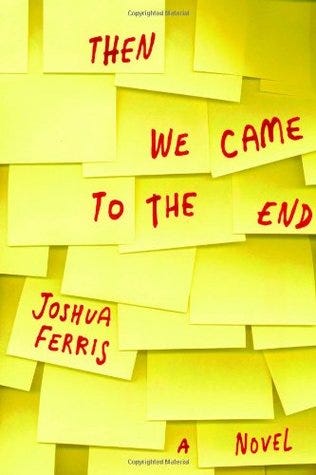
9. Then We Came to the End by Joshua Ferris
On the lower rungs of the corporate ladder, workers are often encouraged to be part of a team — a useful, anonymous part. Ferris emphasizes this groupthink environment by writing his novel about a failing Chicago advertising agency in the first person plural. The narrators of this darkly comedic book all are trying to avoid the layoffs which are ravaging the company. At the same time, they suffer from an intense boredom that not even free bagels can improve.
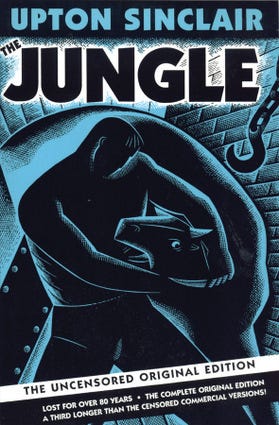
10. The Jungle by Upton Sinclair
Written in 1906, Sinclair’s novel is the original workplace horror story, all the more frightening given that it was based on Sinclair’s actual observations at a Chicago meat packing plant. The book follows Jurgis Rudkus, a Lithuanian immigrant struggling to survive in the slums of Chicago. He works at a meatpacking plant so foul and unsanitary that after the novel came out an outraged American public called for, and received, reforms to the meat packing industry. But it’s not just Jurgis who suffers — everyone in his family must take an appalling, low wage job. Yet instead of earning a decent living, his wife is raped, his family is evicted, and his nephew is trapped in a factory and eaten alive by rats.
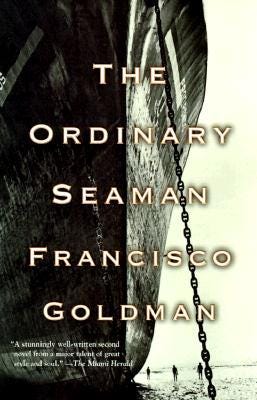
11. The Ordinary Seaman by Francisco Goldman
Undocumented immigrants undoubtedly face the worst working conditions in this country. Unprotected and at the mercy of their employers, they risk exploitation in the hope of a better life. This is the premise of Goldman’s second novel: sixteen men from Central America are lured onto a ship with the promise of work, only to find themselves trapped on the dilapidated, unsanitary freighter for six months while it stays docked in Brooklyn. Eventually Esteban, a 19-year-old veteran of the war in Nicaragua, escapes the ship and tries to make a new life for himself in the city.







